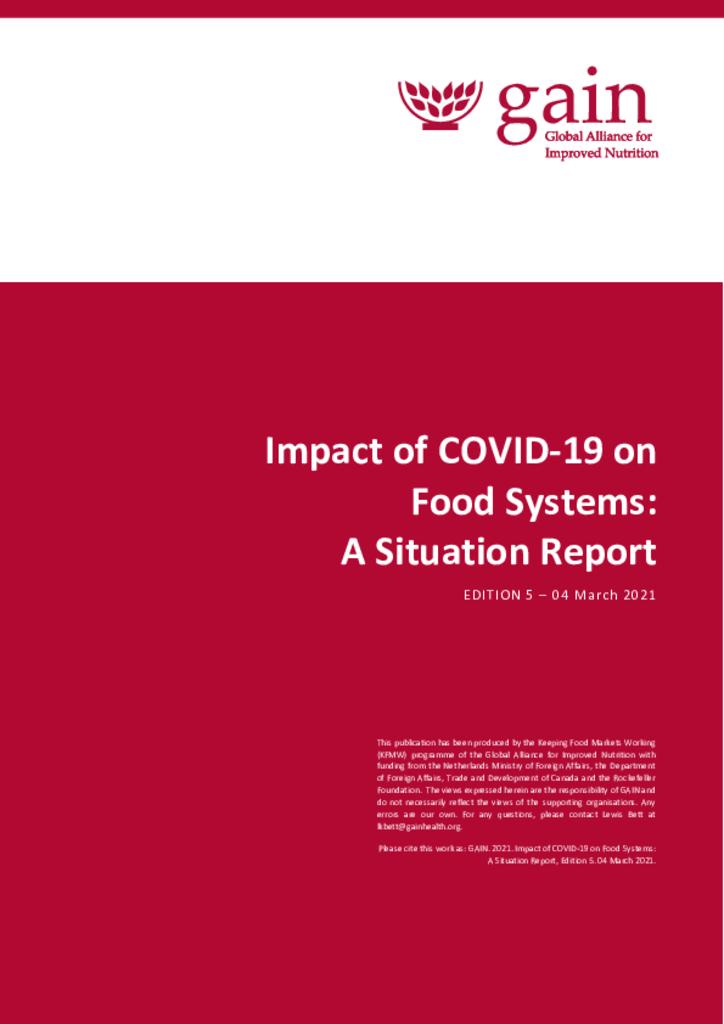This Situation Report - the fifth in a series - finds that COVID-19-related control measures continue to have an impact on food systems in 10 countries where GAIN works: Bangladesh, Ethiopia, India, Indonesia, Kenya, Mozambique, Nigeria, Pakistan, Rwanda and Tanzania.
- International wheat prices were stable in December 2020, following an upward revision of the global production forecast and relative stability in global wheat trade.
- In East Africa, prices declined in December across many markets with the onset and progression of the October-to-January harvests. COVID-19 related border control continued to delay cross-border trade.
- Prices across 14 studies food products in all 10 GAIN countries have increased by an average of 8.8% between February 2020 and February 2021. This is below the global average price increase of 10.3%.
- Reduction in income for many households has likely led to a reduction of food intake and especially protein-rich food intake reduced nutritious food, as households cut their food spending.
- Movement restrictions and other control measures are affecting the ability of migrant worker populations to pursue work, depriving their families of income as well as leading to labour shortages in destination areas.
- Food system SMEs continue to be affected by effects of COVID-19, especially, reduced consumer spending, labour shortages and COVID-19 control measures, but the strong disruptions during the first wave have subsided in most countries
- Rwanda, Kenya and Nigeria have received their first deliveries of COVID-19 vaccines from the global COVAX initiative which aims to secure vaccine for low-and middle-income countries.
